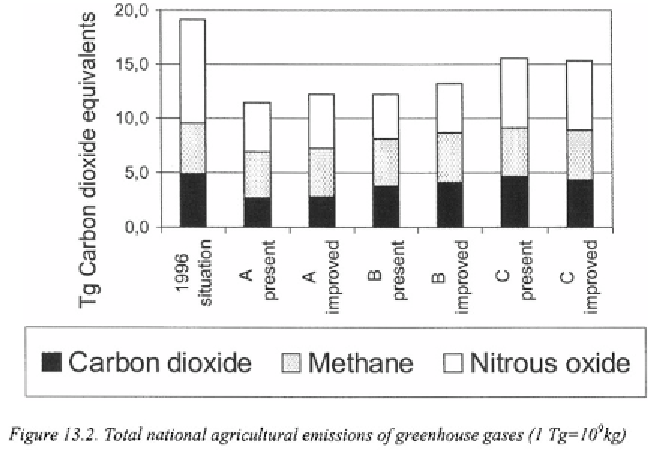Agriculture Reference
In-Depth Information
4.
DISCUSSION
The calculations show that a conversion to 100% organic farming in
Denmark may result in a reduced fossil energy use and reduced emissions
of the three most important greenhouse gases. However, the vegetable and
animal production would also be lower in the organic scenarios. Therefore,
for example, the total energy use for crop production would be reduced by
52-53%, while the energy use per fodder unit would be reduced by only
40-44%.
The presented benefits in the form of lower energy consumption
and greenhouse gas emissions from conversion to organic farming must be
compared to the costs of such conversion. The macro-economic con-
sequences of conversion to 100% organic farming is extremely difficult to
estimate, partly because of the expected major changes in marked prices
following the much higher market share of organic products after full
conversion and partly because of the uncertainties in estimation of the costs
in organic compared to conventional production. If the organic product
prices after 100% conversion would equal the present, conventional
product prices, Jacobsen and Frandsen (1999) estimated a reduction in the
total Danish Gross Domestic Product of 1-3% and a reduction of the
private consumption between 2-5%. However, if consumer preferences

Search WWH ::

Custom Search